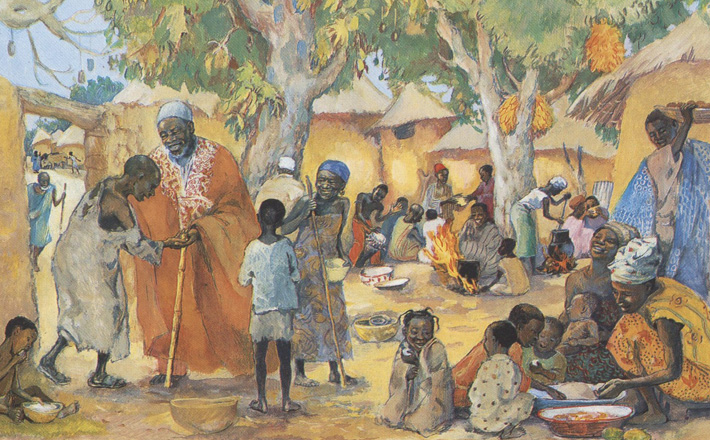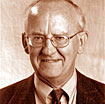Commentary on Psalm 112
The lectionary readings for this Sunday offer a variety of preachable texts.
The Gospel is the story about being asked to move up at a banquet; this is itself an expansion of the OT lesson, Proverbs 25:6-7. There is even a text from Sirach 10:12-18, providing the preacher an opportunity to acquaint the congregation with the Apocrypha, should that be desired. Hebrews 13 is that great text about entertaining angels unawares. These texts have in common a concern about how one ought to live a life worthy of one who is a follower of Jesus.
So which text to choose? Yet another suggestion is to focus on the Psalm for this Sunday, Psalm 112, which must be taken together with Psalm 111. Together they provide a summarizing foundation for a consideration of what we as biblical Christians believe and how those beliefs ought to express themselves in our lives.
A Pair of ABC Psalms: 111 and 112
These two psalms are a pair and should be considered together. They are similar in form: each begins with “Praise the Lord” (“Hallelujah” in Hebrew); each consists of twenty-two lines, divided into ten verses; both are alphabetical acrostics, each line beginning with successive letters of the Hebrew alphabet, running from alef to tav, that is, from A to Z. (Further alphabetical acrostics are found in Psalms 25, 34, 145, 119 in spades! and Proverbs 31:10-31.)
The contents of these two psalms are complementary. The focus of Psalm 111 is on God and that of 112 is on humans. In other terms, Psalm 111 presents the basics of theology while 112 offers reflections on anthropology. Especially interesting are certain phrases that occur in both psalms. Psalm 111:3b says that the Lord’s “righteousness endures forever.” Psalm 112:3b and 9b use the same words to describe God’s people: “their righteousness endures forever.” Psalm 111:4b declares that the Lord is “gracious and merciful” and 112:4b states that God’s people are “gracious and merciful.” Like God, like people, one might say.
While there are such obvious similarities, there are also differences, in line with the focus of each psalm. Psalm 111 sounds its theme in verse 2: “Great are the works of the LORD, studied by all who delight in them.” The theme of Psalm 112 is struck by verse 1: “Happy are those who fear the LORD, who greatly delight in his commandments.” There is yet another link between these two psalms: Psalm 111 ends with one of the themes of wisdom literature, “The fear of the LORD is the beginning of wisdom” (see also Job 28:28 and Proverse1:7). Psalm 112 then begins by saying that the way for humans to find happiness is to begin with an attitude of reverence (“fear”) toward God (112:1).
The ABC’s of a Biblical Faith and Life
While both psalms begin with the typical “Praise the LORD” which indicates they were used in congregational worship (111:2), they both also contain strong instructional components. That is, they show us a picture of what Christian faith and a Christian life look like.
First off, instruction in faith and life takes place in an atmosphere of worship and “fear of the LORD.” When used in this expression “fear” does not mean “to be afraid of” but rather to have respect or reverence for, like the attitude that children have toward good parents. Psalm 111:1 portrays a situation where praise is taking place in the whole congregation. Along with this praise goes study of the “works of the LORD.” Here is reflected the long Jewish and Christian traditions of Bible study. Such study takes place in a worshipful congregational setting, along with praise. Such Scripture study is not tedious and boring but ought to be a delightful and happy experience! (Psalm 111:2; 112:1)
Psalm 111 speaks about God, who is merciful and loving, as seen by God’s great works in the people’s history. One thinks of Exodus, Covenant, guiding in the wilderness and gift of a land (111:2-6). New Testament Christians will, of course, add God’s work in Christ to the string of the “works of the LORD.” God is known through wonderful acts of deliverance (“deeds” . . . “works,” . . . “redemption,” 111:4, 6, 9) and also through quiet activities of blessing (“provides food,”111:5). Humans respond to the Lord’s actions by praise (111:1,10) and by study that begins with an attitude of reverence (111:3, 10).
Psalm 112 puts the spotlight on humans, declaring that happiness is to be found in a life honoring the Lord and living according to God’s commandments (112:1). Such lives will enjoy God’s blessings (112:2-3). Though living in a dark and evil world (verses 4, 7-8, 10) God’s people will be secure and steady because their hearts are with the Lord (verses 7-8). Having themselves experienced God’s mighty acts on their behalf as well as God’s quiet, steady action of blessing (112:2), they will share with the poor what God has given them (112:5, 9).
Preaching on Psalms 111 and 112
A sermon could follow the progression of these two psalms taken together. Part One would remember what God has done: God’s mighty acts of deliverance as well as blessing (111:1-6). Against this background comes the story of what God has done in sending Jesus as the Messiah.
Part Two would look at our response to what God has done for us, in worship and praise of God, (111:1; 112:1) and in study so that we keep the story straight (111:2). But our response also is a response toward others, seeking to lead lives marked by mercy, generosity, justice, and integrity (“righteousness”; 112:3-5,9). At this point the virtues of humility (the Proverbs and Luke texts for the day) and concern for the stranger (Hebrew 13) could be touched upon.
Part Three could summarize by noting how these two psalms sound the themes of the greatness of the works of the Lord (111:1) and the happiness of those who worship the Lord and care for the poor (112:1, 9).


September 1, 2013